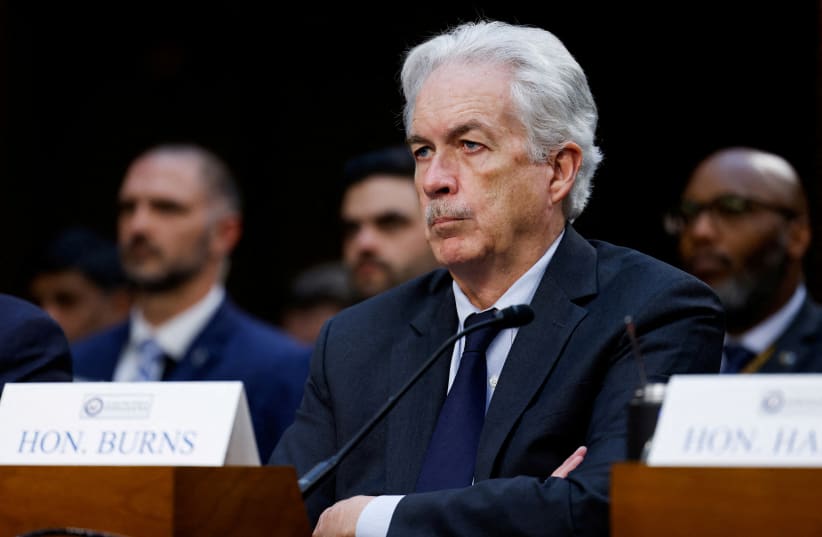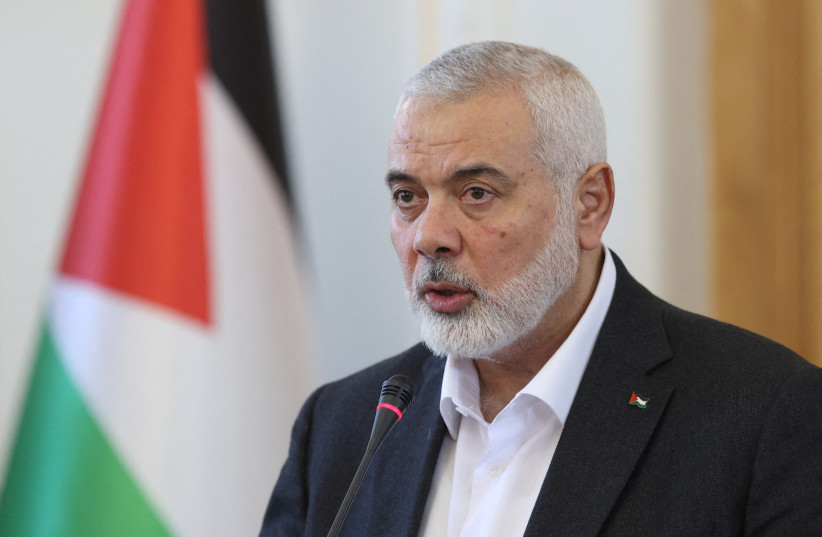CIA Director William Burns traveled to Doha Sunday night and is expected in Israel this week for emergency meetings to salvage the hostage deal, as the IDF prepared for a military operation in Rafah and while Hamas fired rockets at the Kerem Shalom Crossing, killing four people and leaving multiple wounded.
Burns’ emergency meeting with Qatari Prime Minister Mohammed Al-Thani in Doha is “aimed at exerting maximum pressure on Israel and Hamas to continue negotiating,” an official briefed on the talks said.
Chances of Gaza ceasefire slim
Prospects for a Gaza ceasefire appeared slim as Hamas reiterated its demand for an end to the war in exchange for the freeing of hostages, and Israeli Prime Minister Benjamin Netanyahu flatly ruled that out, insisting that the IDF must be free to destroy the terrorist group, including in Rafah.
One official briefed on the talks told Reuters: “The latest round of mediation in Cairo is near to collapse.”
A Hamas delegation also left Cairo after a day of talks with Burns as well as with Egyptian and Qatari officials who were there but were expected to return on Tuesday.
Israel had refused to send a delegation until such time as Hamas officially responded to a complex three-phased proposal that would, in its first leg, see the release of 33 out of 132 remaining hostages in exchange for a 40-day pause to the war.
The US had hoped to begin with phase one without dealing with the issue of a permanent ceasefire, but Netanyahu’s repeated statements rejecting a permanent ceasefire without entering Rafah made such a move difficult.
Egyptian sources told the London-based Al Araby Al Jadeed (The New Arab) news outlet that a Hamas response had been given to Israel, explaining that several alternatives had been presented in Cairo relating to the issue of a permanent ceasefire. They added that the mediators were struggling to reach an agreement but that talks were ongoing.
Activists and some relatives of hostages called on the government to make a deal now, as its ministers held their weekly meeting on Sunday, and the war cabinet met later in the afternoon.
Albert Ariev, whose daughter Karine is being held hostage in Gaza, urged them not to “give up on the deal,” stating that “there are 132 people who depend on you, 132 families waiting to hear from you, and there are millions of citizens waiting for hope.”
Far-right members of the government, in contrast, warned Netanyahu they would quit the coalition unless he entered Rafah.
KAN reported that two weeks ago, Defense Minister Yoav Gallant had already urged Netanyahu to close the deal, explaining that they both had a responsibility to bring everyone home.
On Sunday, as hope appeared dim for a deal, he told soldiers in central Gaza that there were “alarming signs that Hamas does not intend to [agree] to any outline agreement with us. The meaning of this: Action in Rafah and the entire Gaza Strip in the near future” will be taken.
During the weekly government meeting, Netanyahu stressed that “We are working in every possible way to free the hostages; this is our top priority.”
He added that “Israel has been, and still is, ready for a pause in the fighting to free our hostages,” as he explained that the IDF had already allowed for a week-long lull in the fighting in November to facilitate a hostage deal in which 105 captives were freed.
“This is what we are ready to do today,” he stated.
Hamas had reportedly agreed to the first phase of the deal without an agreement to end the war, with the understanding that such a step would happen later in the process.
Netanyahu's statements regarding the matter
Netanyahu has clarified, however, including on Sunday, that he has no intention of relenting on the issue of a permanent ceasefire until Hamas has been destroyed – which cannot happen until the IDF executes a military operation in Rafah.
“Israel will not agree to Hamas’s demands, which would mean surrender; [Israel] will continue fighting until all of its objectives are achieved,” he stated.
“In recent weeks, we have been working around the clock to formulate an agreement that would return our hostages,” Netanyahu explained.
The negotiating team was given a “very broad mandate to move forward on the release. We did so out of a deep commitment to the hostages, and to end the terrible suffering of the families,” he stressed.
“Throughout the negotiations, Israel has shown a willingness for significant movement, which has been described by US Secretary of State Antony Blinken and others as ‘very generous,’ he said.
“But while Israel has shown this willingness, Hamas has still held to its extreme positions, first and foremost the withdrawal of our forces from the Strip, the conclusion of the war and leaving Hamas intact,” Netanyahu said.
Israel cannot accept a situation “in which Hamas’s battalions leave their tunnels, reestablish control over the Strip, rebuild their military industries and go back to threatening the citizens of Israel in the communities of the Western Negev, the cities of the South and throughout the country,” he said.
In a statement released shortly after Netanyahu’s, Hamas chief Ismail Haniyeh said the group was still keen on reaching a comprehensive ceasefire that ends the Israeli “aggression,” guarantees Israel’s withdrawal from Gaza, and achieves “a serious” deal to free Israelis being held hostage in exchange for the release of Palestinian prisoners.
Haniyeh blamed the prime minister for “the continuation of the aggression and the expansion of the circle of conflict, and sabotaging the efforts made through the mediators and various parties.”
In Jerusalem, Netanyahu stressed that surrendering to Hamas’s demands to end the war would only ensure that the terror group would carry out another October 7-style attack in the future.
Such a surrender would be a “great victory for Hamas, Iran, and the entire axis of evil,” he said, adding that it would “exhibit terrible weakness to our friends – and our enemies.”
Reuters and Walla contributed to this report.

